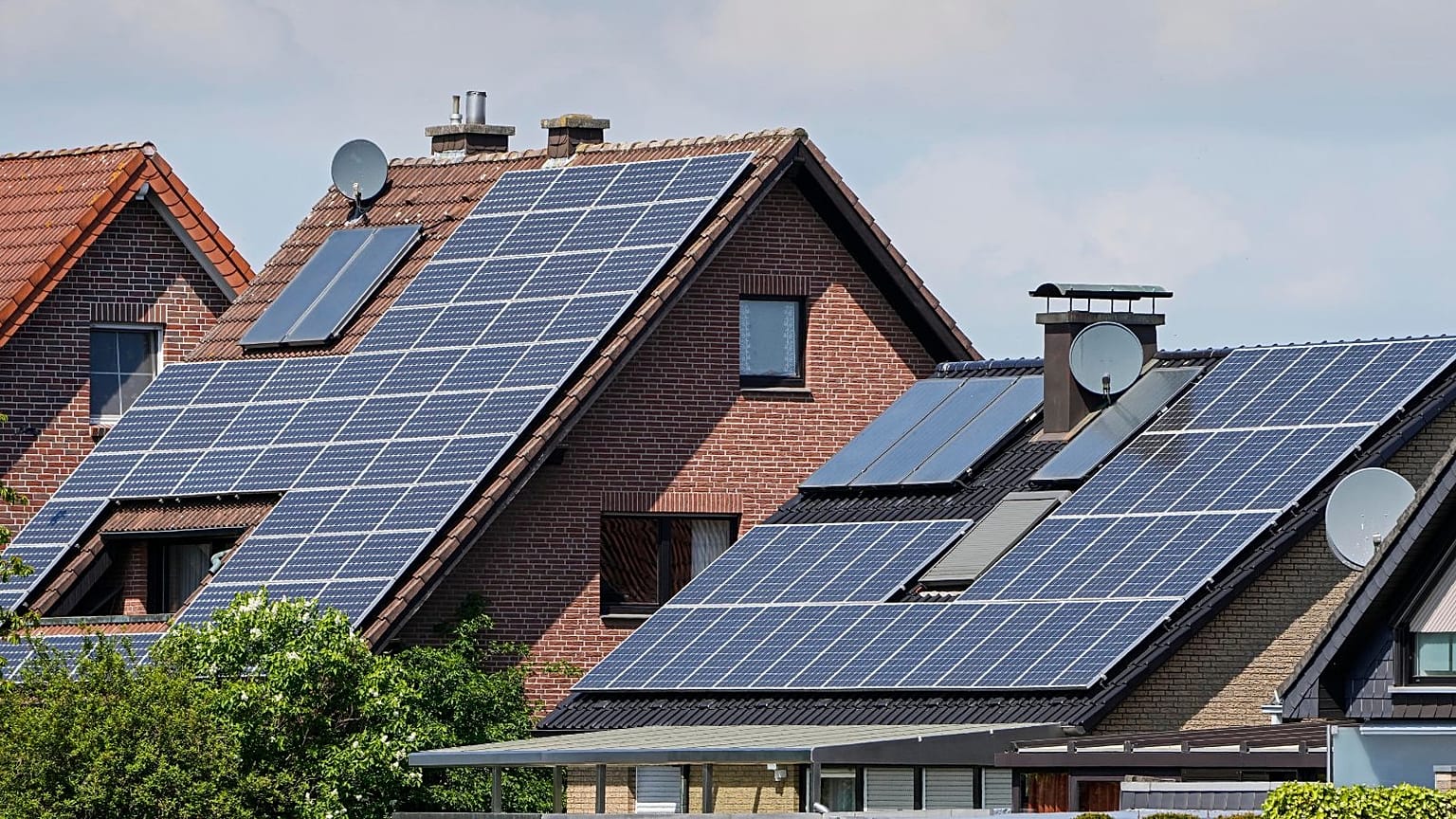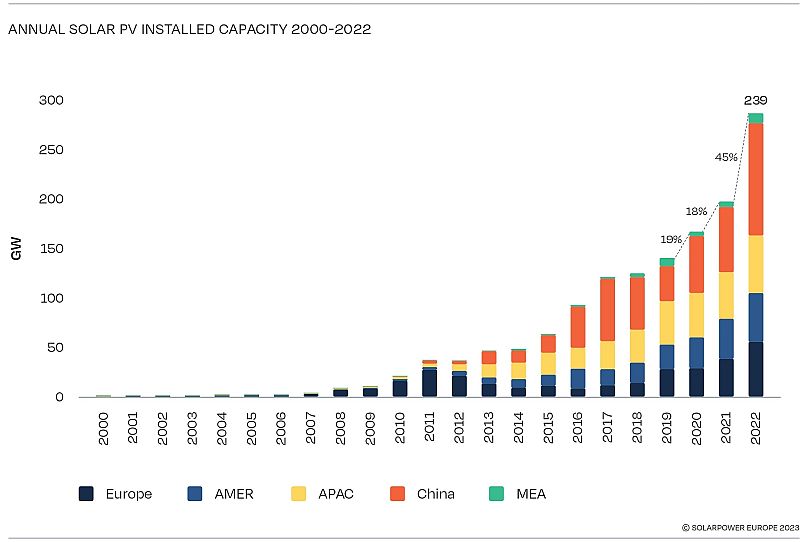After another record-breaking year, global solar power will generate enough electricity to meet 57% of the EU’s needs in 2023.
Solar rooftop installations soared by 49 per cent worldwide last year, a major new report shows.
 ADVERTISEMENT
ADVERTISEMENT
 ADVERTISEMENT
ADVERTISEMENT
The increase to 118 billion watts (gigawatts or GW) worth of rooftop panels was enough to power 36 million more homes globally, according to SolarPower Europe, the continent’s member-led association.
Solar power at large grew by 45 per cent to reach 1.2 trillion watts (terawatts or TW) of energy, putting the renewable on course to generate 1,612 TW hours (TWh) of electricity during 2023. That’s equivalent to 57 per cent of the EU’s total electricity demand.
“The world has realised that fossil fuel crises are the crises that never really go away,” says Aristotelis Chantavas, president of SolarPower Europe.
“More than ever before, people in every part of the world are turning to solar. In a year defined by energy and climate crisis, solar hope continues to shine through.”
It’s the tenth year in a row that solar has smashed its annual installation record.
It took 22 years for the world to reach a solar fleet of one terawatt; but the report predicts we could be installing 1 TW of solar annually by the end of the decade.
Where are the major solar countries?
More countries than ever are real “solar contenders”, the report shows.
In 2022, the number of major solar countries - defined as those installing at least 1 GW annually - grew from 12 to 26. By 2025, the report predicts that more than 50 countries will be installing more than 1 GW of solar per year.
European countries make up 12 of the solar heavyweights, led by Spain, Germany, Poland, the Netherlands and Italy.
Poland’s solar development has flown past expectations. It’s mostly due to a surge in small rooftop ‘prosumer’ systems that enable homeowners to be rewarded for producing as well as consuming energy.
Ranked by the amount of extra solar they installed last year, here is the full list of the 26 major solar powers:
- China
- US
- India
- Brazil
- Spain
- Germany
- Japan
- Poland
- The Netherlands
- Australia
- South Korea
- Italy
- France
- Taiwan
- Chile
- Denmark
- Turkiye
- Greece
- South Africa
- Austria
- UK
- Mexico
- Hungary
- Pakistan
- Israel
- Switzerland
What's holding the solar revolution back?
Solar is an obvious choice in the energy transition - but it’s not all plain sailing. 20 of the 26 significant solar countries report grid bottlenecks as a key barrier to their solar development.
Limited grid capacity and a lack of flexibility or storage in national electricity systems is posing a critical risk to the global solar transition, the report finds.
“Grids and flexibility are the sleeping giant of the energy transition – and the giant is waking up,” says Michael Schmela, director of Market Intelligence at SolarPower Europe.
“We’re installing huge amounts of solar, and we need to be able to use it, when we need it. Governments around the world must make upgrading their electricity and storage infrastructure a political priority.”


















